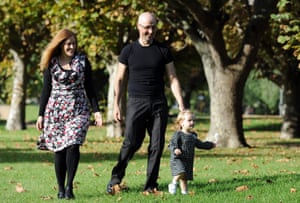The author asks happy couples the secret of their success and is shocked by what she finds out

I was never going to get married. After bearing witness to my parents three decades of misery, I was not stupid enough to do it myself. When my father left my mother for a younger woman, I conducted my own little investigation into married life. I asked all my parents friends to give me an honest account of their marriages and explain why they were still together. I suspect the little girl in me, who grew up with fairytales and happily-ever-afters, was hoping to prove the older, more cynical me wrong.
No such luck.
The happiest couple of my parents acquaintance told me that the reason they were still married was that they had too much to lose if they separated. I was asking about their relationship, expecting to hear about love, companionship and soulmates. Instead, I got a costbenefit analysis. My best-case marriage scenario sounded as romantic and desirable as crunching numbers in an Excel spreadsheet every day until you die.
Naturally, when I started IVF and my friend Stephen asked if I was going to get married, I laughed at him. I was so amused by the suggestion that I called Chris, my boyfriend and the potential father of my children, to share the joke.
Chris didnt laugh. There was silence on the other end of the phone. I asked him: You dont you dont actually you know want to get married, do you?
Well, yes, actually I do, he said.
Why?
Because I love you and want to spend the rest of my life with you, he replied.
Oh.
Six months later, we were married in the same church where Chriss parents were married 40 years earlier. Im still not entirely sure why I did it. The day we returned home after the wedding, I was so freaked out by the idea of having a husband that I wanted to go over to my best friends house and sleep on her couch.
For ever.
Eight years later, I still choke on the word husband. When I was talking to my daughter Violets teacher about picking her up early from school for a medical appointment, I couldnt quite bring myself to even say the word husband.
I stuttered over hu hu hu , and then, feeling embarrassed at my own stupidity, I finished with: Violets father.

Oh, I understand, said the teacher, who clearly took my awkwardness to mean that Chris and I had recently separated.
So now Chris and I are in the ridiculous position of having to perform marriage to correct the teachers assumption. At a recent parentteacher conference I told Chris that we had to act like we were married.
He laughed. What are you talking about? We are married.
Yes, we are. And to my complete surprise, I actually like it. In fact, I love being married. I love the sense of security that I have never felt before, I love that I can always count on Chris to be in my corner, and know I will always be in his. I love what we have built together: that we are much more than than the sum of two halves.
Having said that, Im still waiting for it all to turn to shit.
I know of very few couples who have stayed together through multiple life stages and still like each other. Not love, but like. Maintaining the like seems to be harder.
Even when I do see couples who appear happy, I have a hard time believing it. As research in the Personality and Social Psychology Bulletin tells us, people who post their loved-up pics and declarations of love on Facebook are less likely to be secure in their relationships than those who dont. They are essentially manufacturing their relationship happiness to convince other people, as well as themselves, of their partners #affection.
I genuinely believe Chris and I have maintained our like for each other throughout infertility, mental illness, trauma and heartbreaks, two children and two career changes because we see each other as partners in every sense of the word. He has never tried to force me into the role of housekeeper, primary carer, on-demand sex toy with a pulse, or support staff.
When my first book came out, I lost count of how many people asked me how Chris was coping with my success. Chriss ego was not threatened by my moment in the spotlight. Not only was he proud of my success, he was also part of it. It was our success. But I think this question reveals a lot about the power dynamics in many marriages and points to why it is so easy to lose the like.
I am not the woman behind the man, nor am I the woman in front of him. I am the woman next to my man.
I feel genuinely lucky that I look forward to Chris walking through the door each night. I have friends who dread spending time with their husbands; who wish their husbands would travel more because their lives are easier when they are not around.
Two of my friends have admitted that they plan to leave their husbands in the future. And several others have said enough to make me think they are contemplating it.
My friends arent alone. According to a study of 2,000 married parents in Britain, 18% of them have a date in mind for when they will leave their partner.
The research, commissioned by the family law firm Irwin Mitchell, which presumably considers a spike in the divorce rate to be good for business, found that one in 20 married parents has picked a date 10 or more years into the future on which to change the locks. Of those who have already divorced a partner, almost eight out of 10 regretted putting it off as long as they did.
Why do unhappy couples stay together, some resigning themselves to more than a decade of discontent before cutting their losses?
The romantic view is that couples want to work at things and see if they can learn to fall in love again. But the research suggests that the optimists view is, well, optimistic.
The real reasons for staying together make you wonder if anything has really changed since the days when marriage was considered a good way to increase ones estate.
Five of the top 10 reasons for postponing divorce were financial, including what my parents friends had told me: I have too much to lose.
The other financial reasons were: I cant afford to move out, I cant afford a divorce, For my partners money, and We have too many shared financial assets.
The second-biggest reason for soldiering on, however, was to save the children the distress of a broken home. Staying together for the kids was why one in four couples put off that trip to the offices of Bicker & Bicker.
Parents like this use a range of strategies to disguise their unhappiness and their plans for an eventual exit. They argue in a different room, away from the children; they sleep in the same bed to maintain the pretence; they even make a point of kissing and cuddling and going on date nights.
As a child of divorced parents, Im in two minds as to whether staying together for the kids is a good idea. I dont know how I would have handled my parents divorce if I had been younger but I do know that their efforts to maintain appearances gave me quite a warped view of marriage.
I had always assumed that the reality was a harmonious public appearance and an ice-cold, passive-aggressive private life.
My first two serious relationships could be characterised by screaming matches, eye rolls and meanness. It didnt occur to me that this was problematic because that was my understanding of what relationships were. It terrifies me how easily I could have ended up marrying either of those partners.
It wasnt until I met my third boyfriend, who treated me with kindness and respect inside the house as well as out, that I realised this sort of relationship was even possible, let alone the very least I should expect.
From the outside looking in, you would have thought my mother and father were happily married, too. When people saw them holding hands, they used to comment that I was lucky to have parents who still loved each other.
When they did finally divorce, and I was in my late 20s, it came as a complete shock. I was crushed when my dad told me he had wasted 30 years of his life. Not only did it make my entire childhood a farce: it made me feel responsible for my parents unhappiness.
I would never have wanted my parents to endure three decades of misery because of me. And even though I didnt make that decision for them, I often feel the brunt of my fathers resentment for it.
Im not about to tell my friends to rethink their decision to stay together for their kids, but I do think that sacrificing your own happiness for someone else rarely turns out well in the long run.
This is an extract from Guilt Trip: My Quest to Leave the Baggage Behind by Kasey Edwards (Nero). kaseyedwards.com
Read more here: http://www.theguardian.com/us







